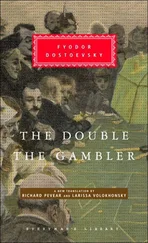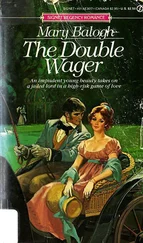“And after he left?” Laurel asked Shem. “What then?”
“Then the story grows sketchy.”
“How so?”
“Sometimes I couldn’t tell what were the things Bobbie had actually done and what were the memories he was making up. But Reese knew some details, and between what Bobbie had told Reese years ago and what Reese recalled from the days they worked together at the magazine, you could get glimmers.”
“Such as?”
Shem rested his head in his hands, his mind a wardrobe of Bobbie’s reminiscences-some real, some imagined. He told Laurel how Bobbie had claimed to have traveled, but the picaresque paralleled his father’s in so many ways that at least some of it, Shem believed, had been fabricated. Ostensibly, Bobbie was looking for Jay’s family. He insisted he had been to wintry upper-plains cities in Minnesota in search of his grandfather, and eventually to Saint Olaf, a Lutheran college in the southern part of the state where Bobbie had heard Jay had spent two weeks as a student and janitor. Like his father roughly three decades earlier, Bobbie said he had worked as a clam digger and salmon fisherman on Lake Superior. He’d tracked down the remnants of Camp Taylor, scrupulously avoiding his cousins and his grandparents who still lived in that corner of Kentucky. (He said that years later he had returned to Louisville to see what remained of the Fays, and there he had participated in-and chronicled-a freedom march an hour to the east in Frankfort.) As a young man, Bobbie had briefly considered taking his real father’s name, but he wanted anonymity as he visited the states and towns that had even the smallest cameos in the story.
When the United States entered the Second World War, he enlisted. This was, after all, what his father had done. His real father, the one who was a captain, fought in the Argonne, and eventually would be given command of the divisional machine guns. The man who had raised him, on the other hand, had spent most of 1917 playing polo and most of 1918 romancing Daisy.
This entered Bobbie’s mind when he signed up to join the Army. He felt he couldn’t be a Gatsby given the preconceived notions people had of his father, but he no longer wanted to be a Buchanan. He no longer wanted to be the son of a patrician and bully. He no longer wanted to be Robert. On his way to the recruiting station on a main street in Fairmont, Minnesota, he passed a grocery store which had a window display with a poster of a fictional housewife named Betty Crocker and decided, almost on a lark, to commandeer the name. Why couldn’t he be Bobbie Crocker instead of Robert Buchanan? Hadn’t his own father changed his name, too?
Moreover, he realized that if he changed his name, it would be that much more difficult for them to follow him-though who, precisely, they were Shem couldn’t say. Still, it wasn’t merely nascent schizophrenia and paranoia that caused him to shed the skin of a Buchanan: It was also a desire to distance himself from the whole hollow, sullen, and morally insolvent little clan.
If the Army had any doubts about the mental health of a recruit whose moniker must have reminded them of a cake mix, they weren’t sufficient to prevent them from allowing him to wade ashore at Omaha Beach in one of the very first waves behind the demolition teams. Bobbie would fight that year and into the next in France and Belgium and Germany, somehow escaping the war unscathed. Physically, anyway. He had an affair with a French woman who was in many ways even more scarred than he was, given how much of her family had died in the first German offensive in May 1940 and then fighting in North Africa in 1943. She lost two brothers, a cousin, and her father. He wanted to bring her back with him to the United States, but she wouldn’t leave her family-the living and the dead.
And so he returned alone to America with his unit, and after his discharge got work in a photography store in lower Manhattan. He sold cameras and film, and in the evenings he took pictures himself. Sometimes he’d visit nightclubs, largely because he was living alone in a squalid apartment in Brooklyn and wanted to spend as little time there as possible. He didn’t have a lot of money, but he spent what he had to keep his seat warm at places like the Blue Light, the Art Barn, and the Hatch. He drank heavily-which only intensified his isolation and exacerbated his mental illness-and found that he could drink on the house if he took the performers’ pictures. He didn’t have a studio, and so these were all shots of the musicians and singers while they were on stage or relaxing in their dressing rooms. They loved the photographs and (more important) their managers loved them, especially the candids, and in 1953 he took his first assigned photograph of Muddy Waters, a profile of the musician for Chess Records that showed the master with the head and tuning pegs of his bottleneck slide guitar resting against the tip of his elegant, aquiline nose.
Eventually, Bobbie’s work came to the attention of editors at Backbeat and Life, and soon he had become friends with a young photo editor who called himself Reese.
From there, Laurel realized, she could almost tell the story herself. She didn’t need Shem’s help. He was merely corroborating her suspicions and the details she’d already gleaned: Bobbie’s mental equilibrium had never been one of his cardinal strengths, and his instability and schizophrenia were amplified by the alcohol. He grew less dependable. Over the next decade, he would make some deadlines and miss others. He was immensely talented, which only made working with him that much more frustrating. There were seasons in the 1960s when Bobbie actually would vanish off the radar screen so completely and for so long that Reese would finally conclude that this time Bobbie had died. Usually when he reappeared, Reese would insist that Bobbie find a place where he could dry out once and for all. Shem guessed that Bobbie probably had been hospitalized during some of those disappearances. During others, he was in all likelihood trying to find his family. That meant scavenger hunts in odd little towns throughout the Midwest and Chicago, and brief conversations with the sons and daughters of people who may (or may not) have met the strange men his father knew and who passed, specterlike, through Jay Gatsby’s life: Meyer Wolfsheim. Dan Cody. A boarder named Klipspringer.
Occasionally, Shem said, Bobbie had girlfriends. The photographer was, when he was sober, eccentric and talented and interesting-looking-though not traditionally handsome because the alcoholism had reddened his skin and his mental illness caused him to care less and less about hygiene. Still, there was a backup singer who never quite made it and a dancer who never quite made it and a secretary at Life magazine who actually would make it, joining Helen Gurley Brown to help edit Cosmopolitan, and each time Reese had high hopes that this was the woman who would provide Bobbie with the grounding he needed to settle down. It never happened.
“And his son?” Laurel asked. “Which of these women was the mother of his son? Do you know?”
“I don’t know. I don’t know much. I know she wasn’t one of those more serious relationships he had. She did something in theater, I think-but not on the stage. A costumer, maybe. A seamstress. She died a long time ago.”
“Do you know anything about the boy?”
“Bobbie didn’t like to talk about him. It was one of those subjects-and Bobbie had a lot, of course-that were off-limits.”
“But he said something.”
“His son was homeless. I know that.”
“Like Bobbie?”
“Worse. Did drugs. Didn’t work much.”
“Might he have been a carny?”
“Like in a circus?”
“Like at a county fair. At a midway.”
Читать дальше












